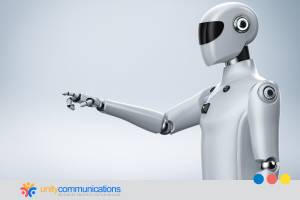A decisive career shift is underway among Generation Z, driven by a growing fear that artificial intelligence (AI) is rewriting work rules. According to a new Zety report, 65% of Gen Z workers no longer believe a college degree can protect them from AI-related job loss. That anxiety is fueling what career expert Jasmine Escalera calls the “AIxiety pivot.”
“Gen Z is facing one of the most uncertain job markets in decades,” Escalera said. “Their interest in trade work and hands-on careers shows a desire for purpose, security, and control in an AI-driven world.”
From degrees to doubts: the rise of “AIxiety”
Escalera defines the AIxiety pivot as Gen Z’s broad reevaluation of career goals amid automation anxiety. Despite their tech-savviness, many feel displaced by AI and are increasingly uncertain about traditional white-collar job stability:
- Seventy-two percent (72%) expect AI to significantly reduce entry-level corporate roles within five years.
- Eighteen percent (18%) express little to no confidence that their current career paths will remain relevant by 2035.
As AI reshapes everything from customer service to content creation, young professionals question the foundation of white-collar work. For many, the traditional college-to-career pipeline no longer feels like a reliable path forward.
Rerouting careers: upskilling, trades, and new paths
Rather than wait for automation to make their decisions for them, Gen Z already takes action:
- Forty-three percent (43%) have changed or adjusted their career plans because of AI.
- Forty percent (40%) are pursuing new skills or certifications.
- Twenty-nine percent (29%) are exploring entirely new industries.
- Eighteen percent (18%) admit to “rage-applying” out of career frustration.
What’s most striking is the generational openness to paths once considered off-track. More than half consider skilled trade careers, citing better pay, faster workforce entry, and job security as key drivers. Careers in healthcare, education, and creative fields are gaining popularity and are less susceptible to automation.
Roadblocks to reinvention
Still, challenges persist. While interest in trades increases, many Gen Z workers face barriers to entering trades and alternative careers:
- Thirty-eight percent (38%) cite the physical demands of trade jobs as a deterrent.
- Nineteen percent (19%) worry about limited career growth or advancement.
- Others point to a lack of information and lingering stigma around blue-collar work.
But perceptions are beginning to shift. Influencers on platforms, such as Trades TikTok, and support from family members help break down old stereotypes and transform how young people view vocational paths.
The AIxiety pivot in action
The AIxiety pivot is a strategic recalibration. Gen Z is choosing career paths rooted in uniquely human skills: creativity, emotional intelligence, adaptability, and hands-on work. In an age of automation, these strengths are emerging as the most resilient.
The challenge is building infrastructure to support this shift: affordable upskilling, mentorship, impact sourcing, and better access to vocational training. For Gen Z, the future of work might be less about degrees and more about durable, human-first value.
Read more Unity Communications and industry news on our main BPO News page.
Shumway, E. (2025, July 31). Anxiety about AI drives Gen Z career pivot to blue-collar work. HR Dive. Retrieved from https://www.hrdive.com/news/ai-anxiety-gen-z-career-pivot-blue-collar-work/756385/
Cost, B. (2025, August 1). Most Gen Z workers fear AI is eventually going to kill their careers — and force them into blue-collar jobs. Yahoo News. Retrieved from https://www.yahoo.com/news/articles/most-gen-z-workers-fear-194823313.html







